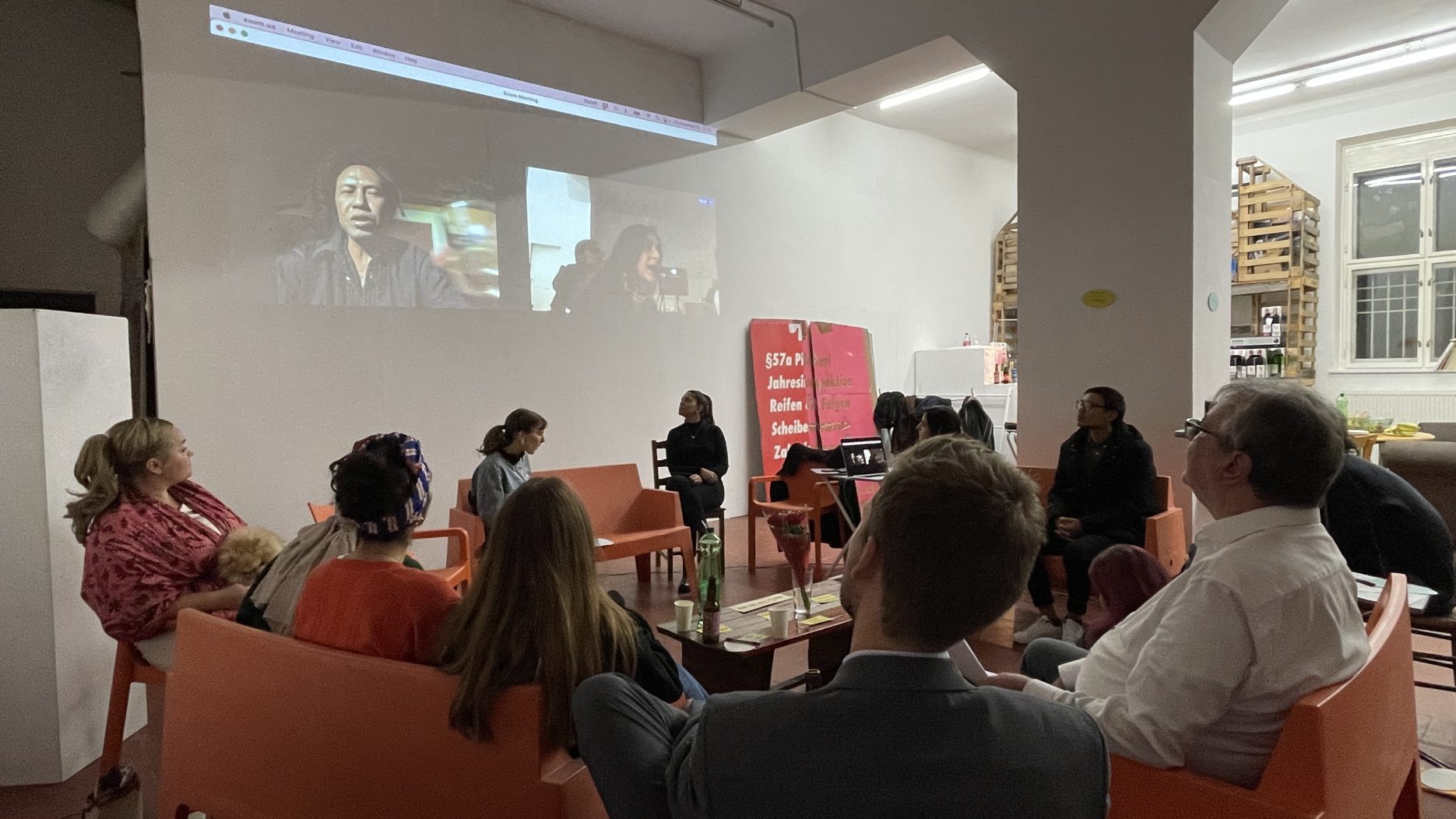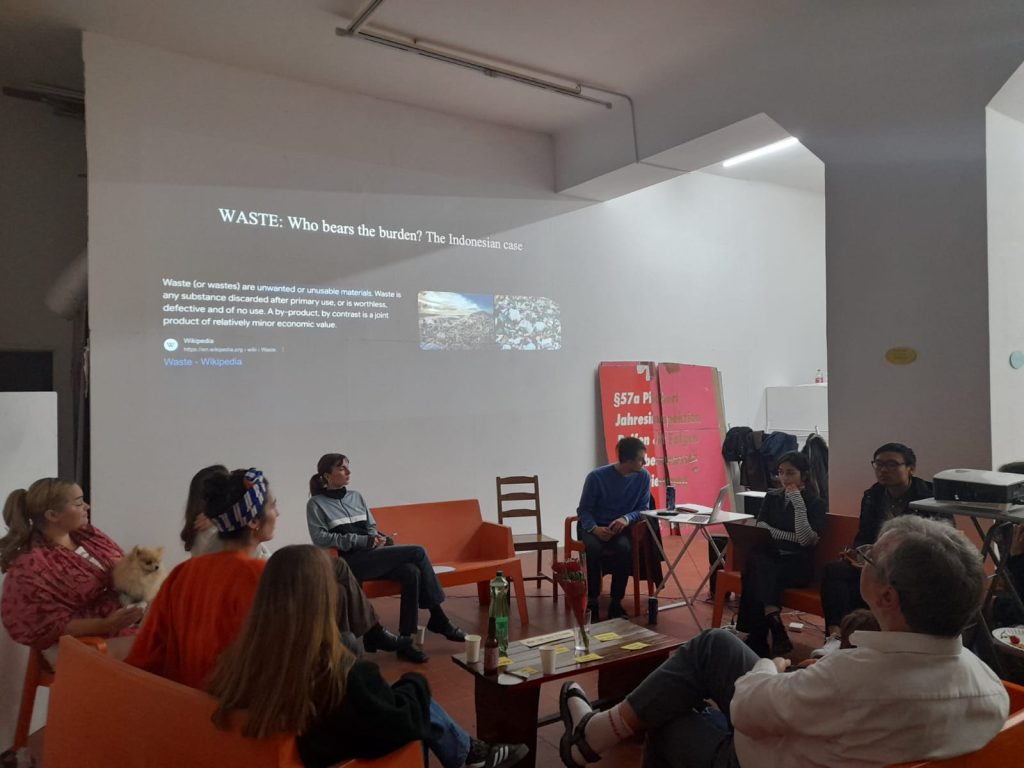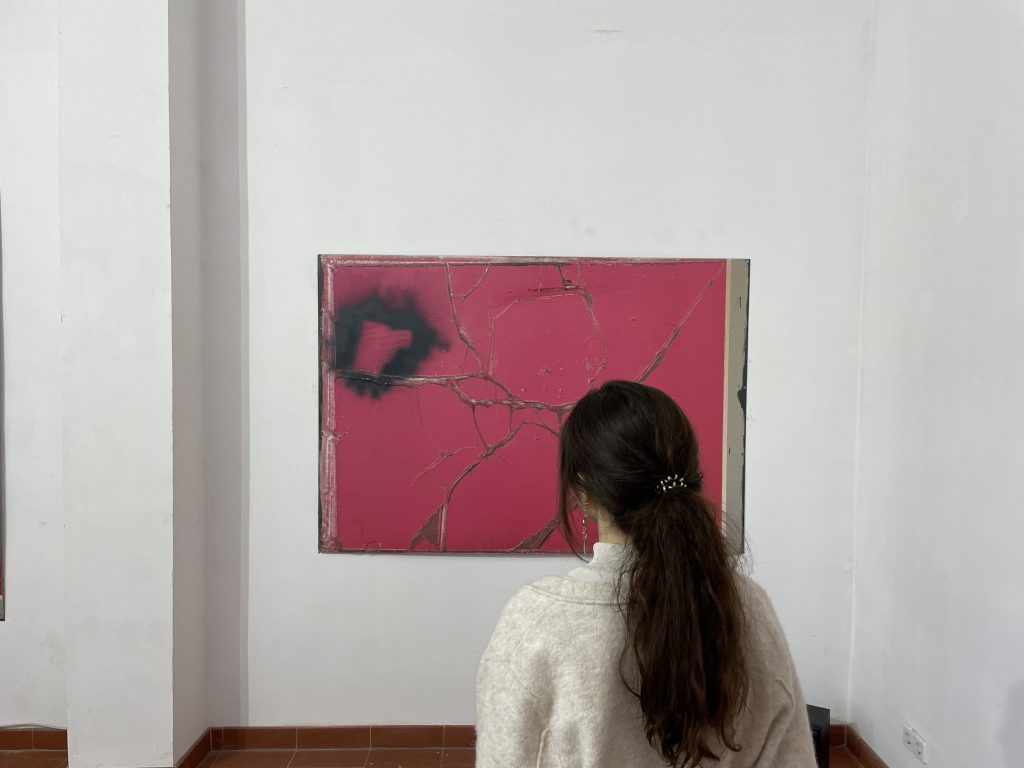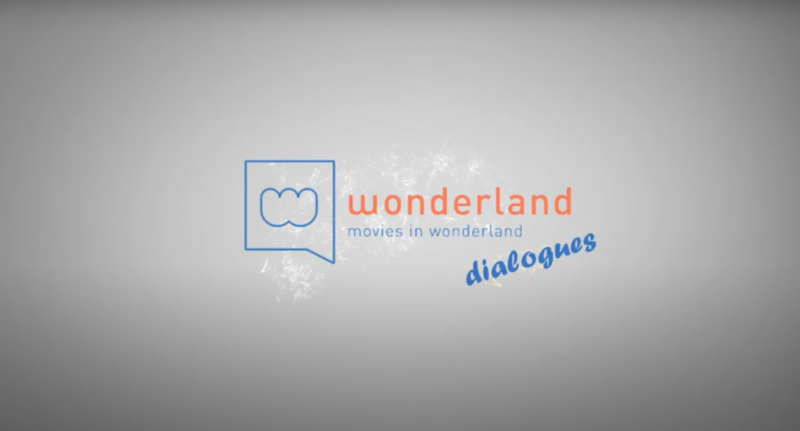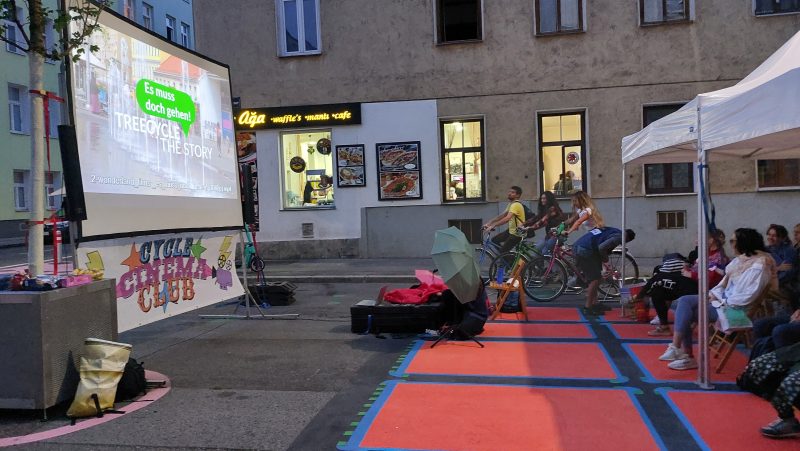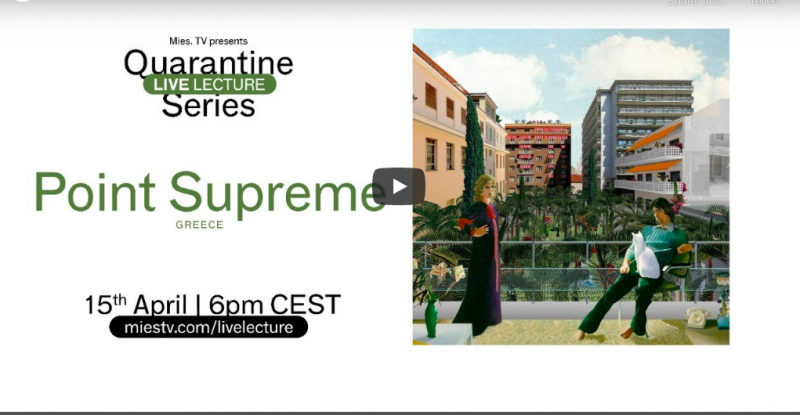Posted on: 3rd December 2023
Circular Economy and Culture sector
WonderLAB’s ‘Circular Steps for Circular Culture’ was an event series dedicated to enhancing awareness of the circular economy in Vienna’s culture and arts industry. This series delved into transnational perspectives on waste management, explored creative circularity stories within art and culture scenes, and connected with local and international artists showcasing circular designs along with video screenings, and a fanzine workshop with recycled materials as part of the EU-funded Erasmus Plus Project YE-2C (Youth Empowerment for Circular Cities).
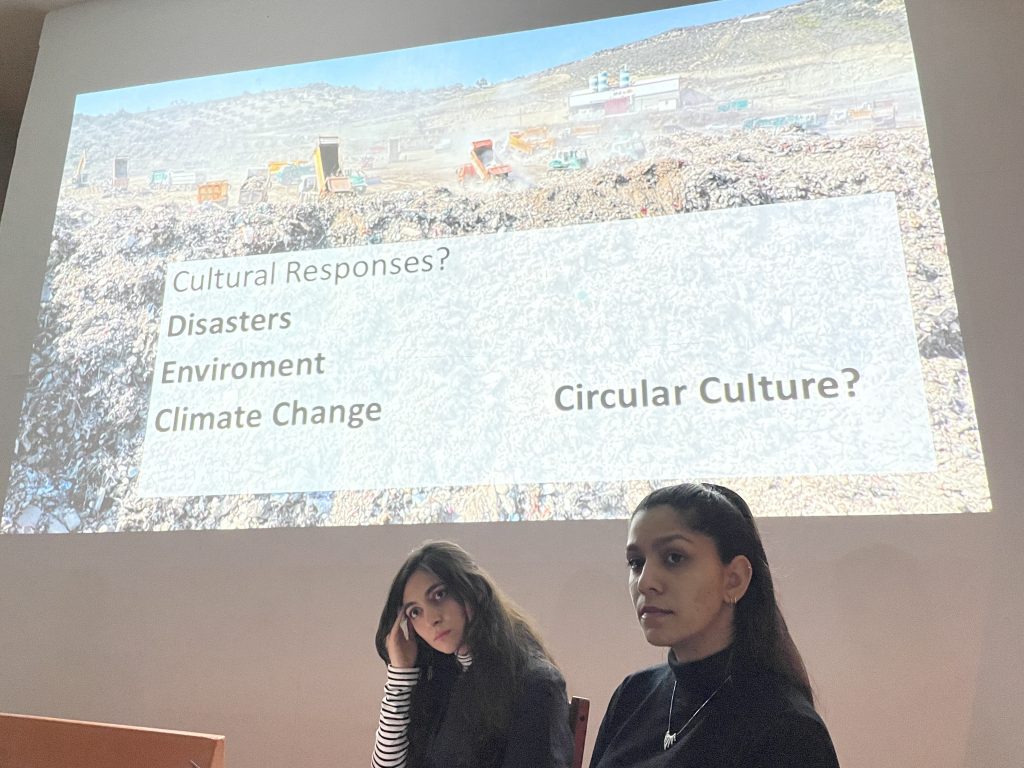
This WonderLAB served as a creative hub for brainstorming and experimentation, fostering discussions on how cultural workers and youth could play a pivotal role in advancing circular practices in cities and the messages conveyed were very clear.
- Circularity should be the cultural norm and youth should talk to made it the part of culture itself.
- Culture sector needs to take an immediate action to be more circular and youth can lead the way make cultural institutions to be more circular.
- Youth plays a crucial role for implementation of circular practices in Culture sector.
- Youth’s collaboration with culture sector workers and artists is very important
- Non-formal learning environments creates positive impact in learning process.
Exploring Circularity: Transnational Perspectives on Waste
The event kicked off by delving into transnational perspectives on waste and circularity. Batuhan Akkaya presented insights on the circulatory aspects of rubble and heritage post the Hatay disaster. Daniela Bace followed with a talk on waste as part of “Circular Steps for Circular Culture,” sharing experiences from the “Youth Empowerment for Circular Cities” training in Amsterdam. The focus was on E-Waste and its management. Aysel Aycan Aktaş then explored circularity and waste management in Indonesia, offering a transnational view on challenges and practices. The session continued with a journey through the eco-art creations of Indonesian artist Iwan Wijono, who collaborated with the Indonesian Upcycle Forum. The evening concluded with a dynamic discussion on the role of circularity in cultural projects, encouraging participants to explore integrating circular practices into various cultural initiatives.
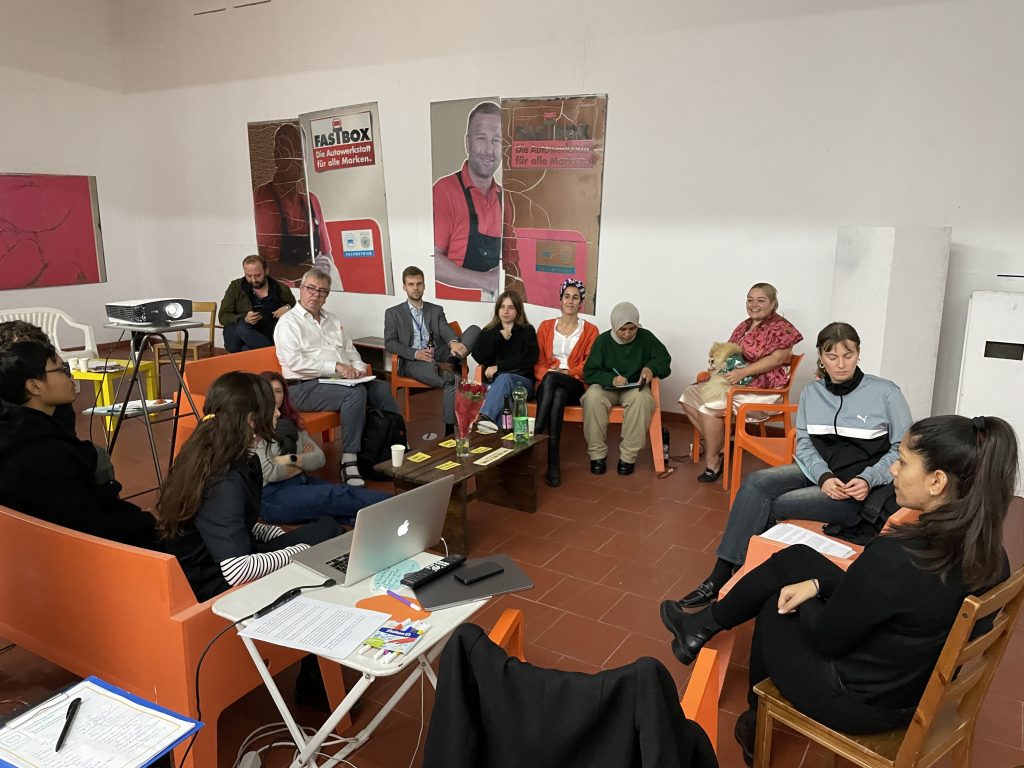
Sustainable Artistry
The event series on 11th November formatted with exhibition, workshop, and film Screenings. This day offered participants valuable insights into observing circular practices within the art sector.
During the second day of the WonderLab Circular Economy Events, Özoglu’s art pieces from reused materials was presented which are closely linked to the development of the Wohlmut art space in Vienna’s 2nd district amid pandemic challenges. Discussions took place with filmmaker Yilmaz Vurucu and Bahanur Nasya, who offered insights on climate effects and the reuse of a historical cinema building in Newcastle.
Yilmaz also brought the participants up to date on the projects he’s currently working on as X-arts, including the BioYOuToon project, which aims to promote biodiversity conservation awareness among youth through the creation of comics, and CHAC, the CUltural and Historical Awareness for Active Citizenship project, which aims to introduce public and oral history methodologies to youth.
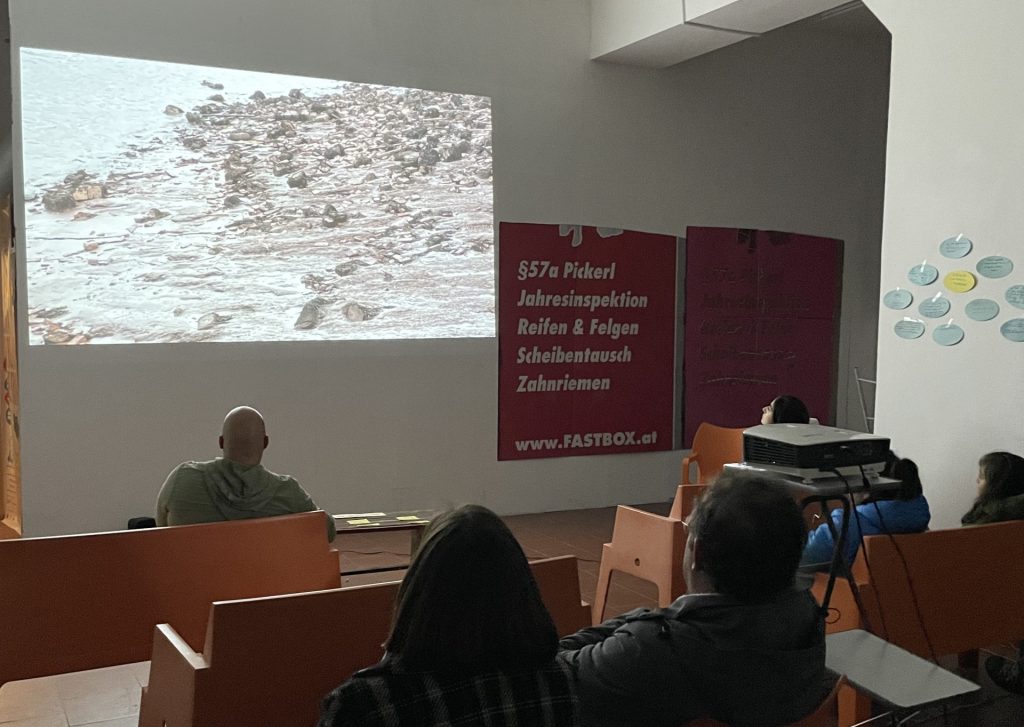
Circular Creativity and Public Exhibiton
The event series on 12th November formatted with presentations, roundtable discussions, workshop. The third day of the WonderLab events for a day dedicated to celebrating circular creativity with Deniz Beşer. The Workshop with Deniz Beşer: Creating fanzines through reuse and redesign took place. All the outcomes of the three days were planned to be exhibited in the event space for 4 days. During this self-learning exhibition, the youth workers took the initiative to engage with the visitors, local neighborhood community. The exhibition then continued for an extra one week.
What were our messages from the WonderLAB?
Circularity should be the cultural norm and youth should talk to made it the part of culture itself.
In the events, youth workers talked about how dealing with waste is a really complex challenge, especially when it comes to recycling. The whole process of waste management, disposal, and its impact on the environment needs solutions that go beyond just regular recycling methods. It’s not just about being sustainable; we need to make circularity a normal part of our culture. To do this, we have to change how we make, use, and handle resources. Making circularity a cultural norm is vital for taking care of the environment in the long run .
Culture sector needs to take an immediate action to be more circular and youth can lead the way make cultural institutions to be more circular.
The culture sector must urgently adopt a more circular approach to address the escalating environmental challenges. Immediate action is imperative to mitigate the sector’s ecological footprint, characterized by resource-intensive practices and waste generation. Embracing circularity involves rethinking production methods, reducing material consumption, and implementing sustainable practices in exhibition, heritage management, and event organization.
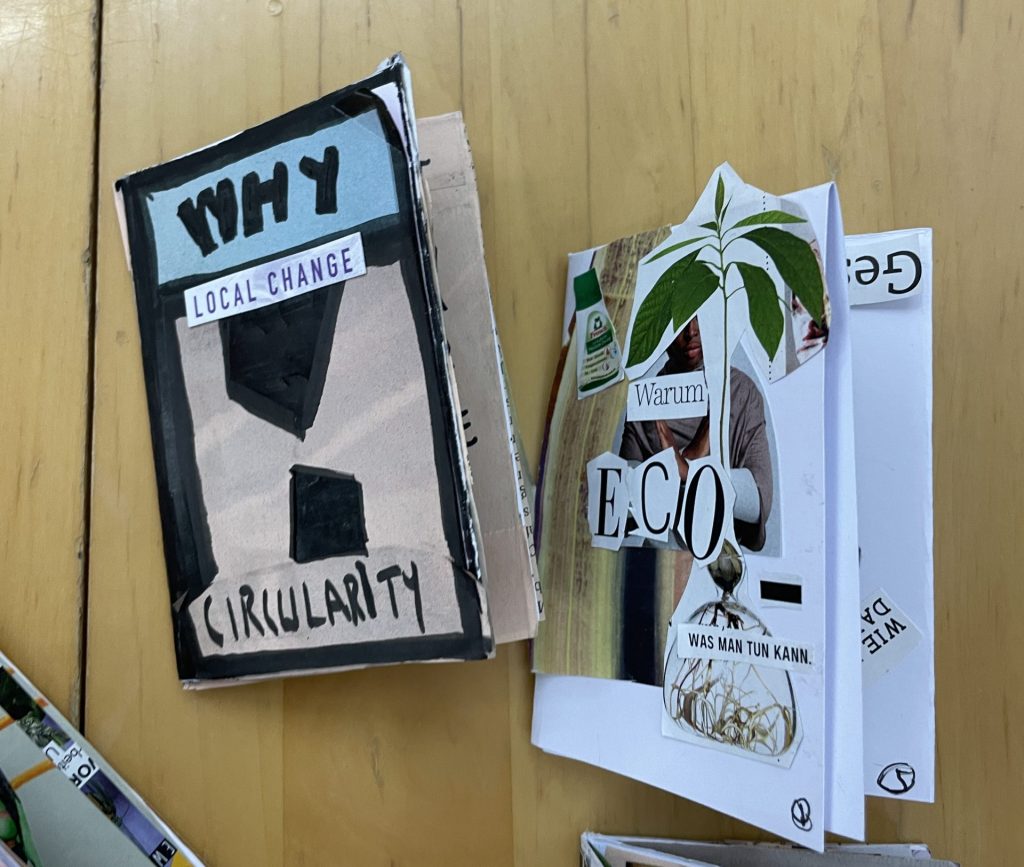
Youth plays a crucial role for implementation of circular practices in Culture sector.
Creating WonderLAB to talk about and promote circular economy practices has been a big deal. We’ve talked about this in places like Austria, Turkey, the Netherlands, and Indonesia, which gave us a good understanding of how circular practices are different and similar worldwide. We learned that using local knowledge is a powerful way to bring new ideas to circular initiatives. At the same time, we found that creating a culture that values circular practices is not only possible but also gets better with local policies and teamwork. We also looked into challenges with materials like e-waste, plastic, paper, and gallery waste. This helps us figure out how to do sustainable practices better. Getting young people involved in using different materials and methods showed us how much it can improve their understanding of circular practices in different situations. Young people are important for keeping circular practices going into the future.
Youth’s collaboration with culture sector workers and artists is very important
YE-2C youth workers also participated with individuals from the culture sector from Vienna and other countries. Professionals from culture sector Bahanur Nasya, Yılmaz Vurucu, Robert Kerner, Dayan Ozan Ozoglu, Deniz Beşer, Iwan Wijono collaborated with the YE-2C youth workers during the implementation of the local events. It bridged the gap between the youth perspectives and the expertise of cultural professionals, the collaborations contributed to the creation of a more dynamic cultural landscape.
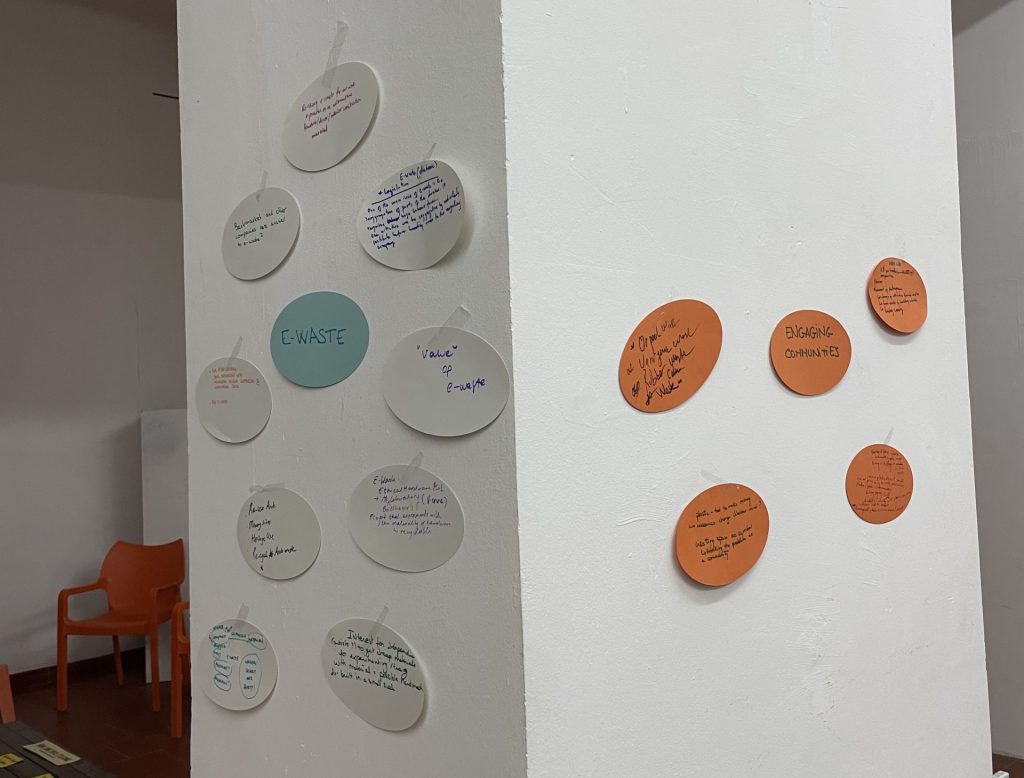
Non-formal learning environments creates positive impact in learning process.
The WonderLAB events took place in an art gallery constructed, in part, using recycled components derived from art gallery waste. In this way, participants not only acquired knowledge but also witnessed the potential for reusing and redesigning spaces, which are fundamental aspects of circularity practices. Moreover, we observed that by establishing an open space, particularly utilizing an art gallery, for knowledge-sharing and fostering meaningful exchanges, individuals easily engage and feel part of the activities.
Stay tuned for the events and get in touch with us if you want to get affiliated in the YE-2C project.
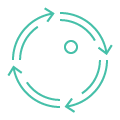 For more information contact:
For more information contact:
Batuhan Akkaya,
[email protected]

